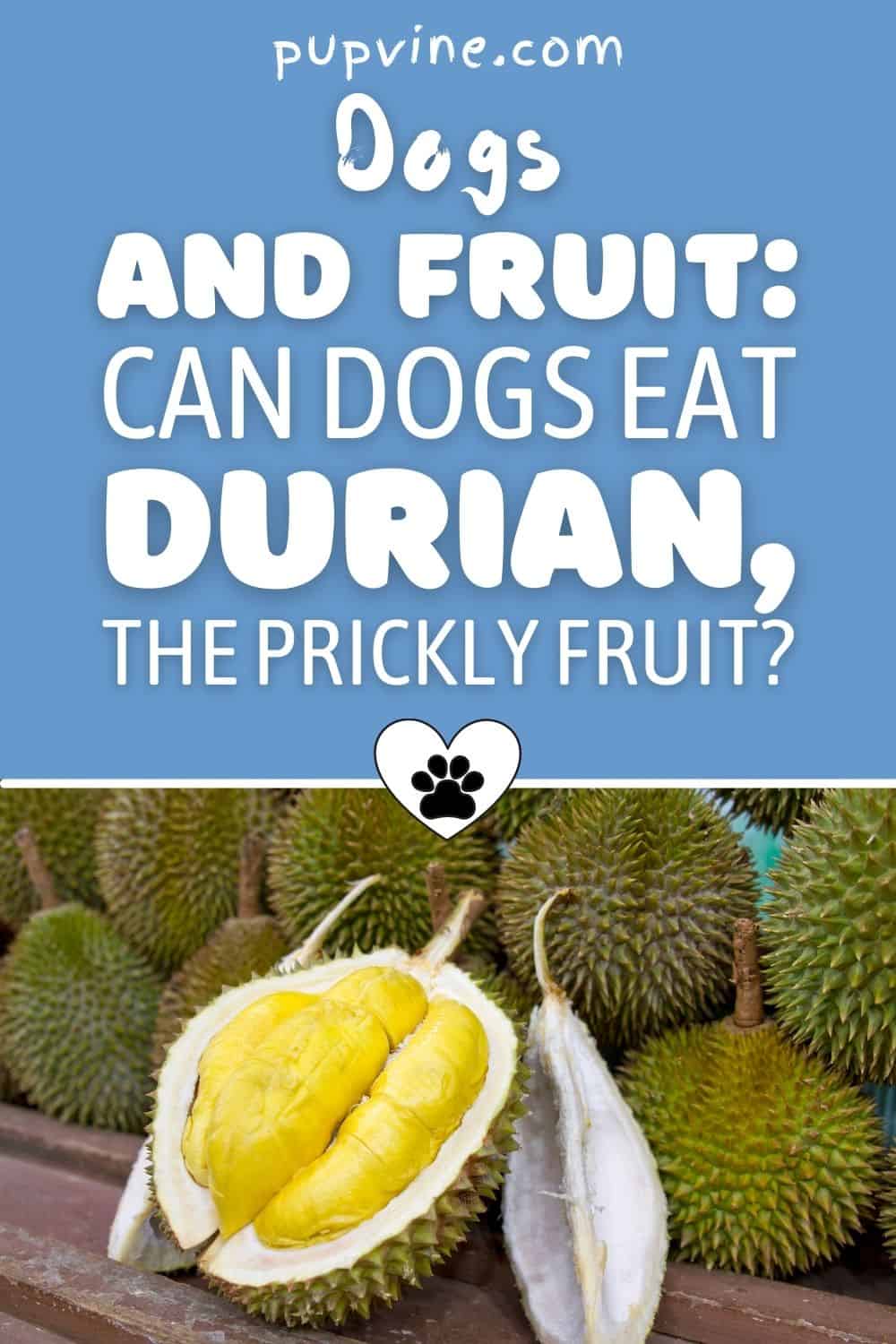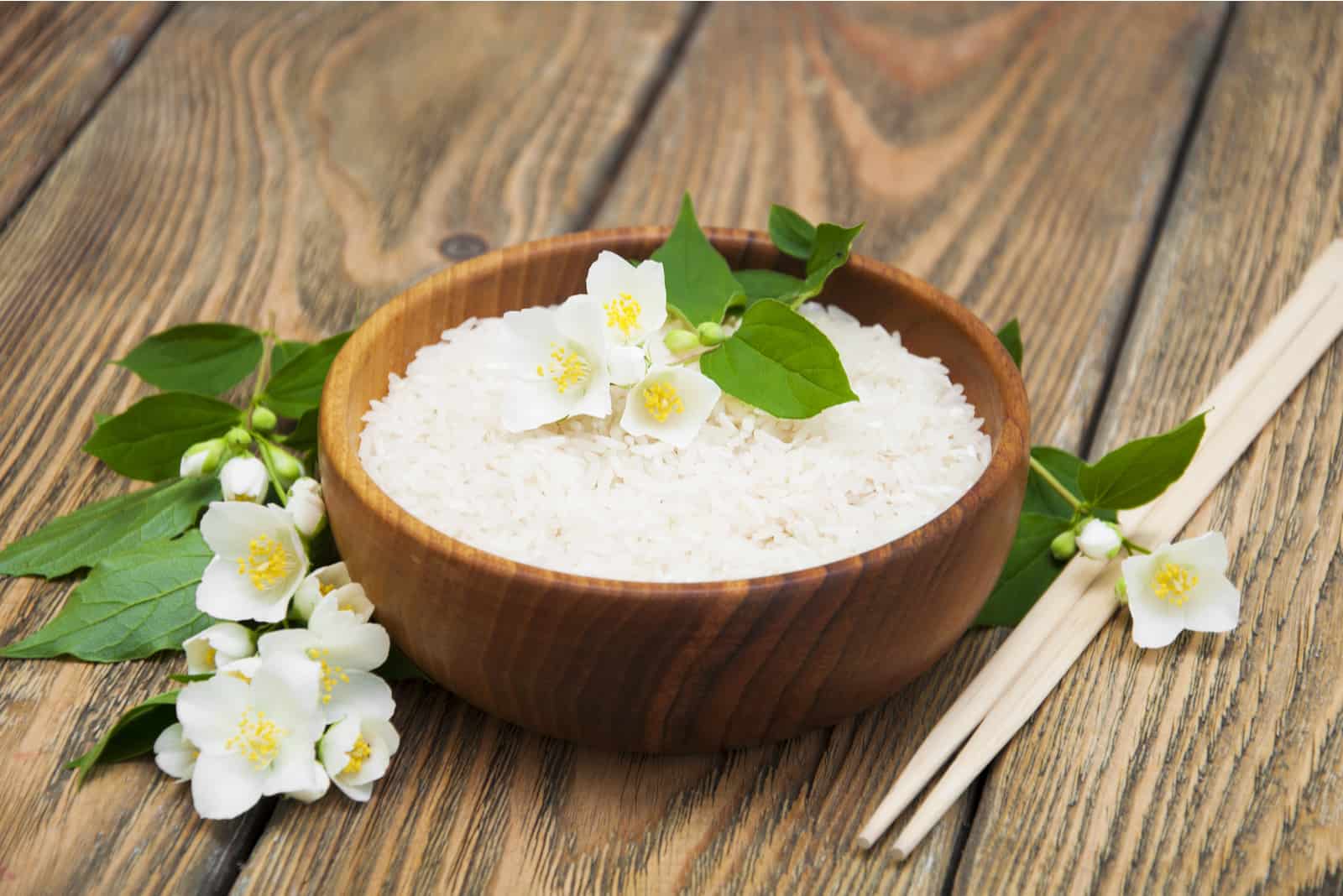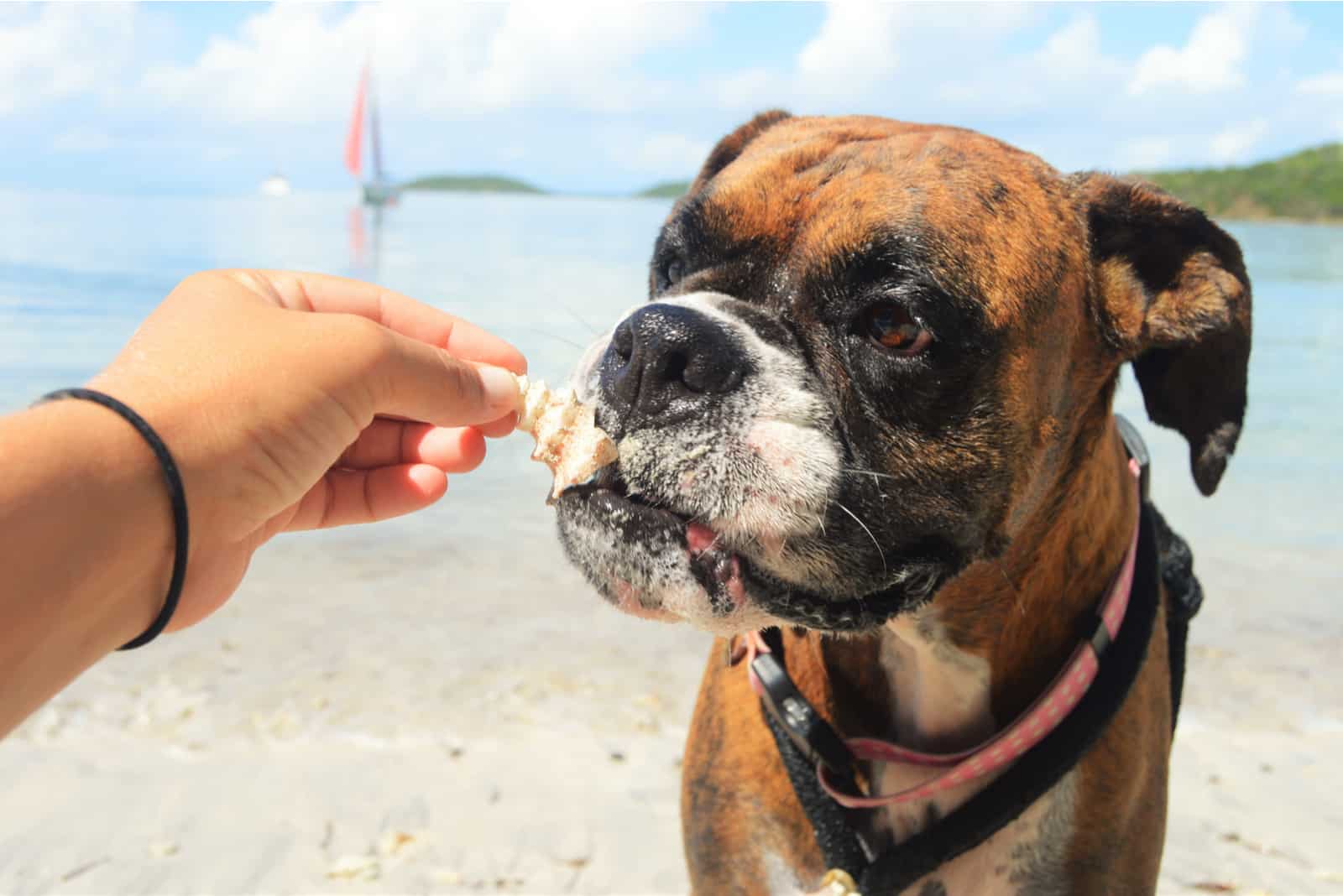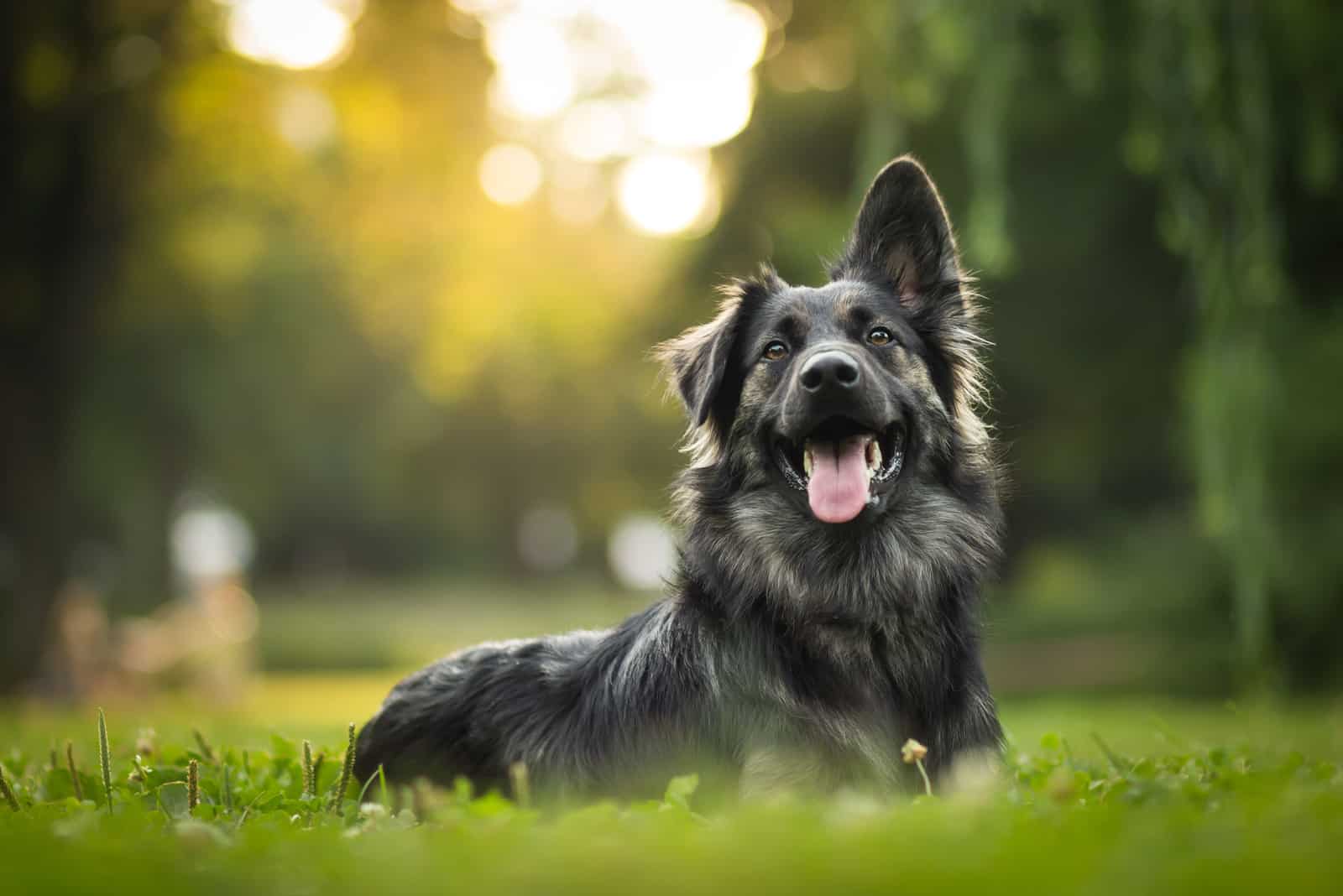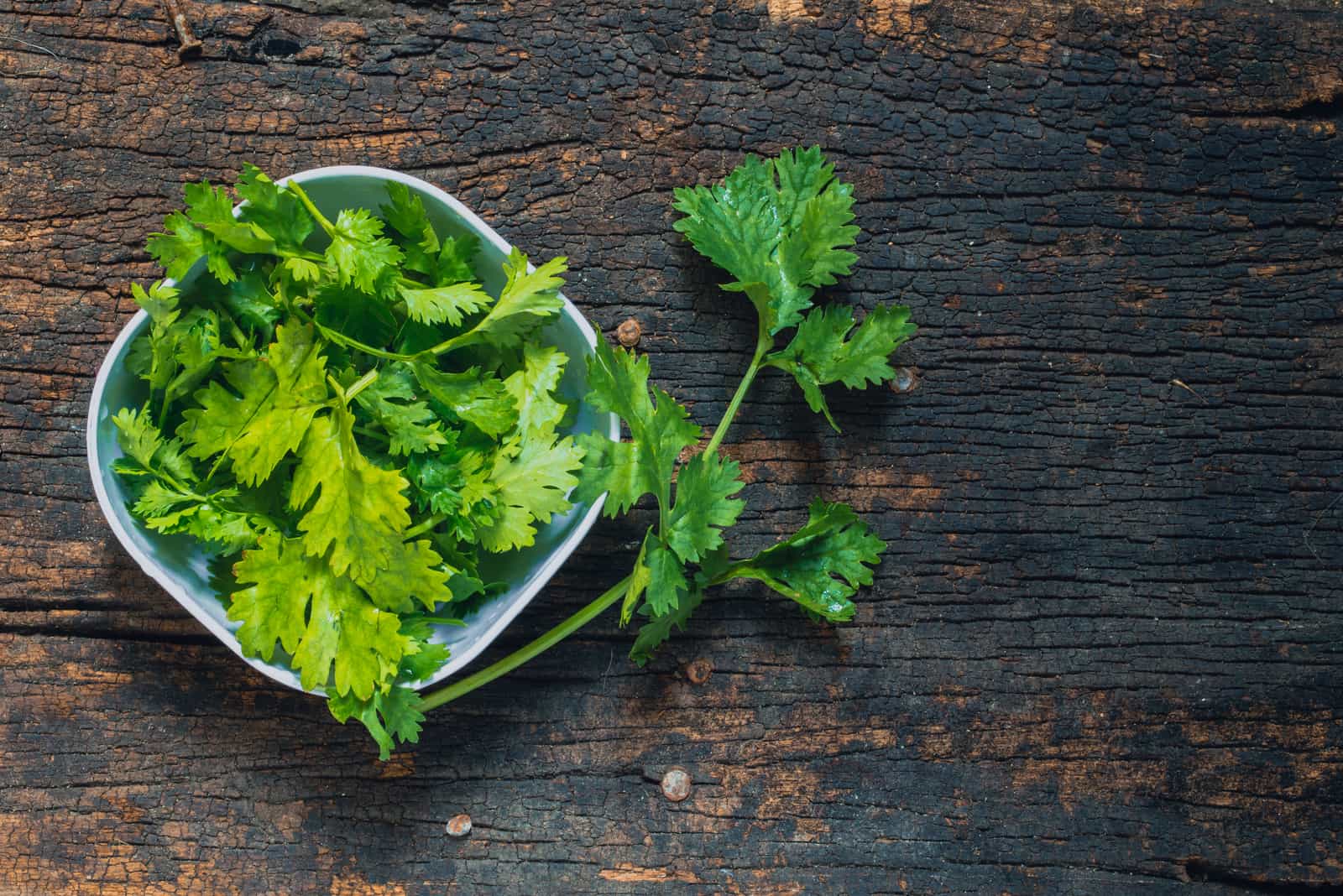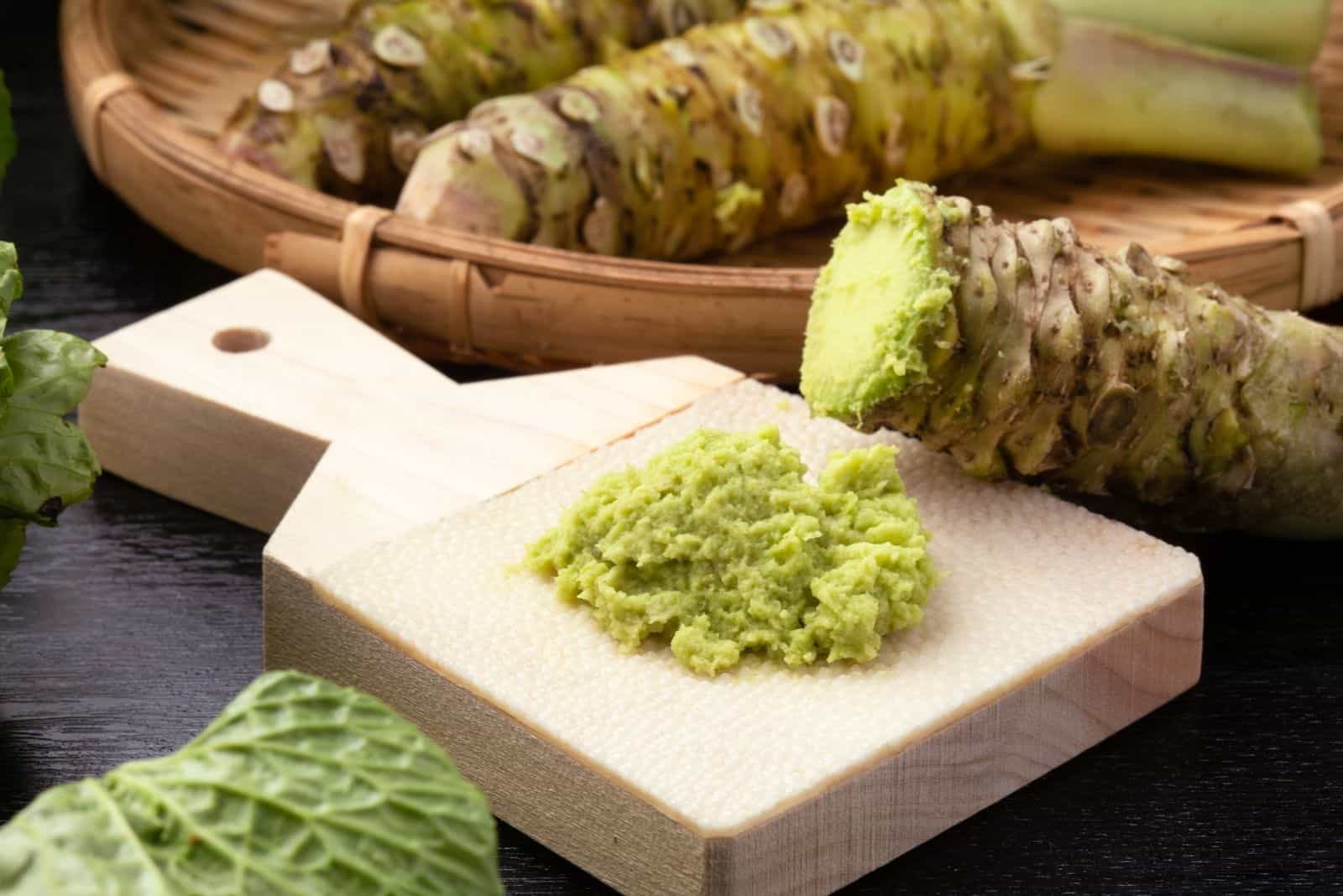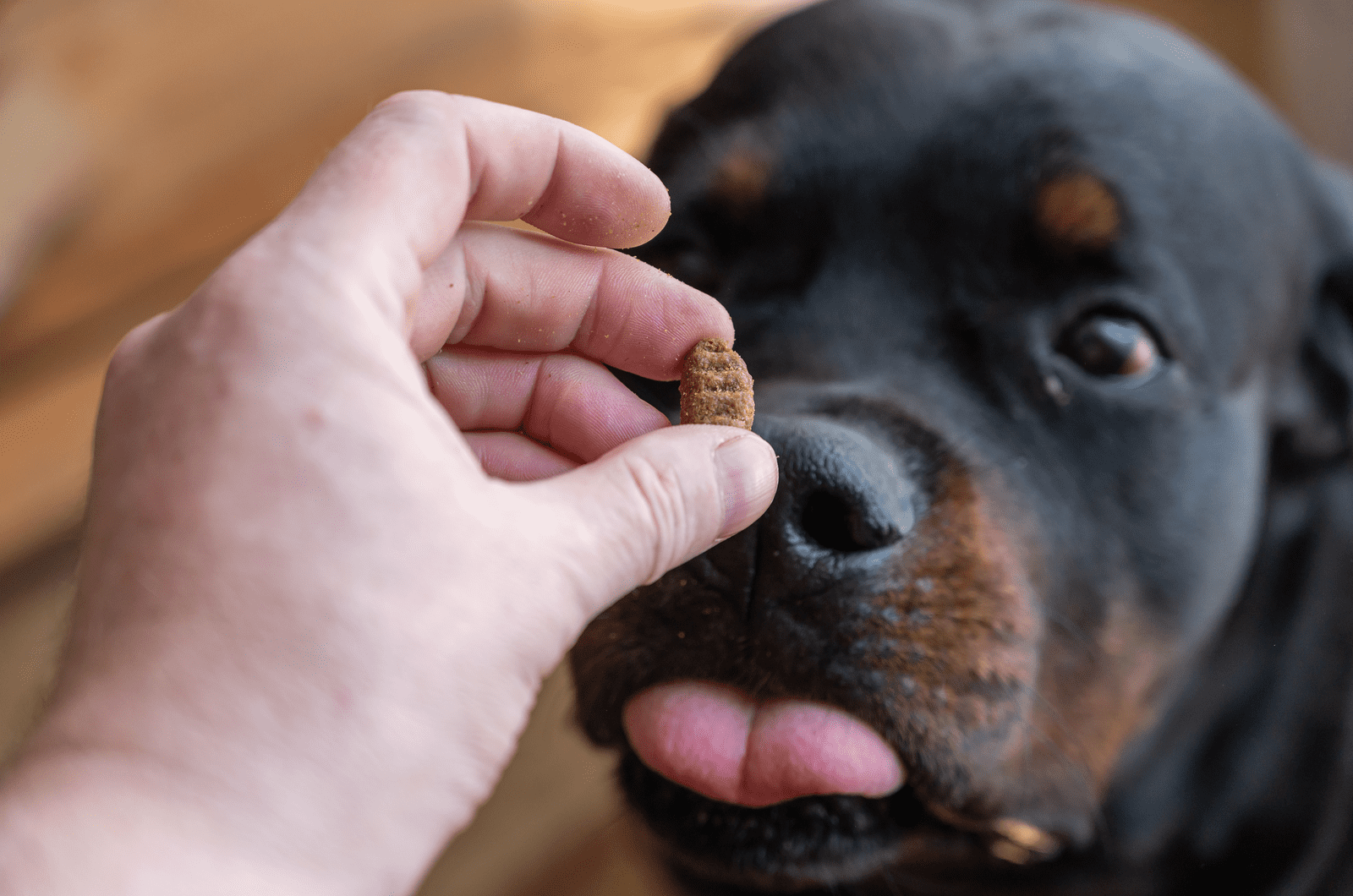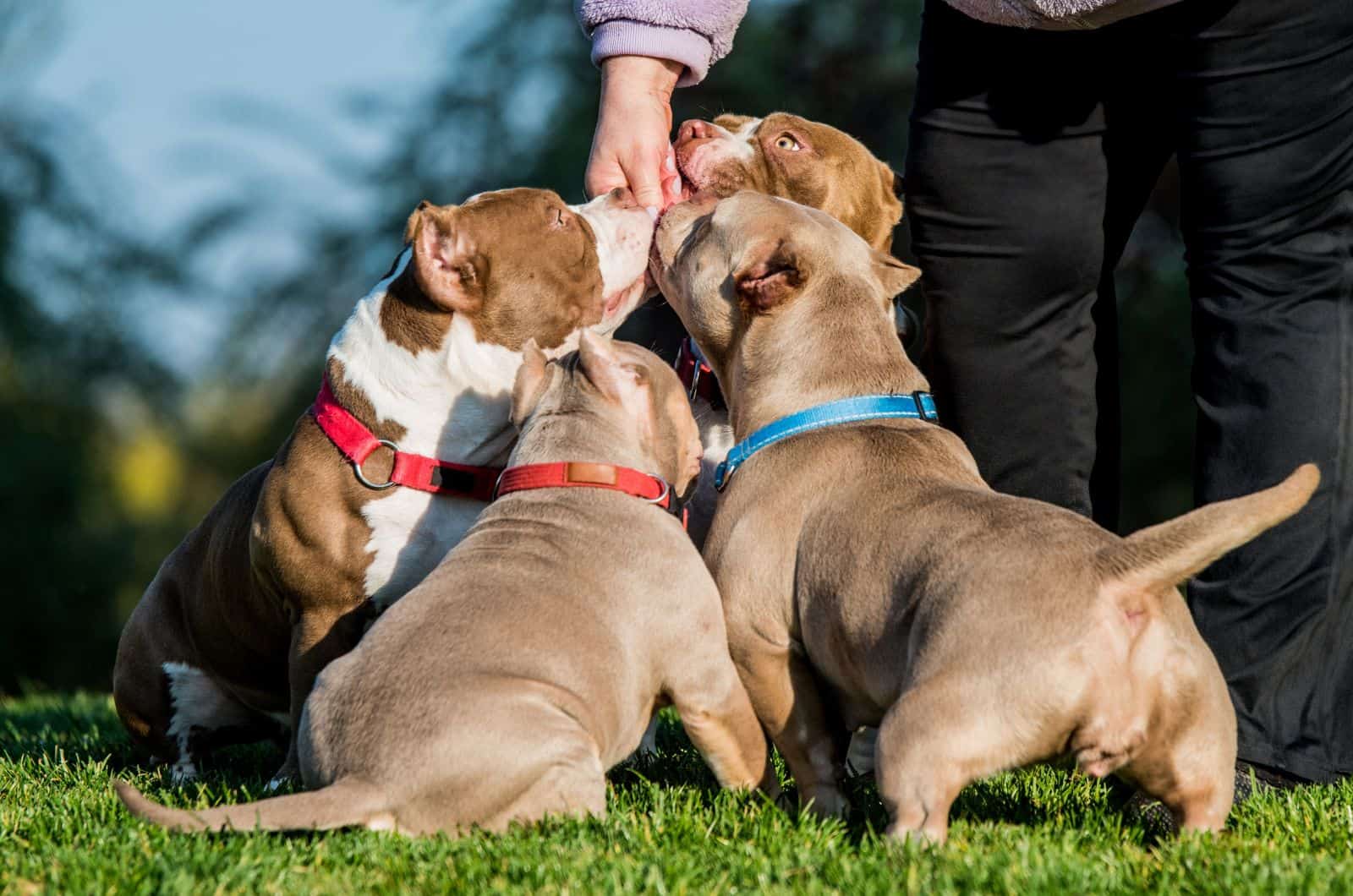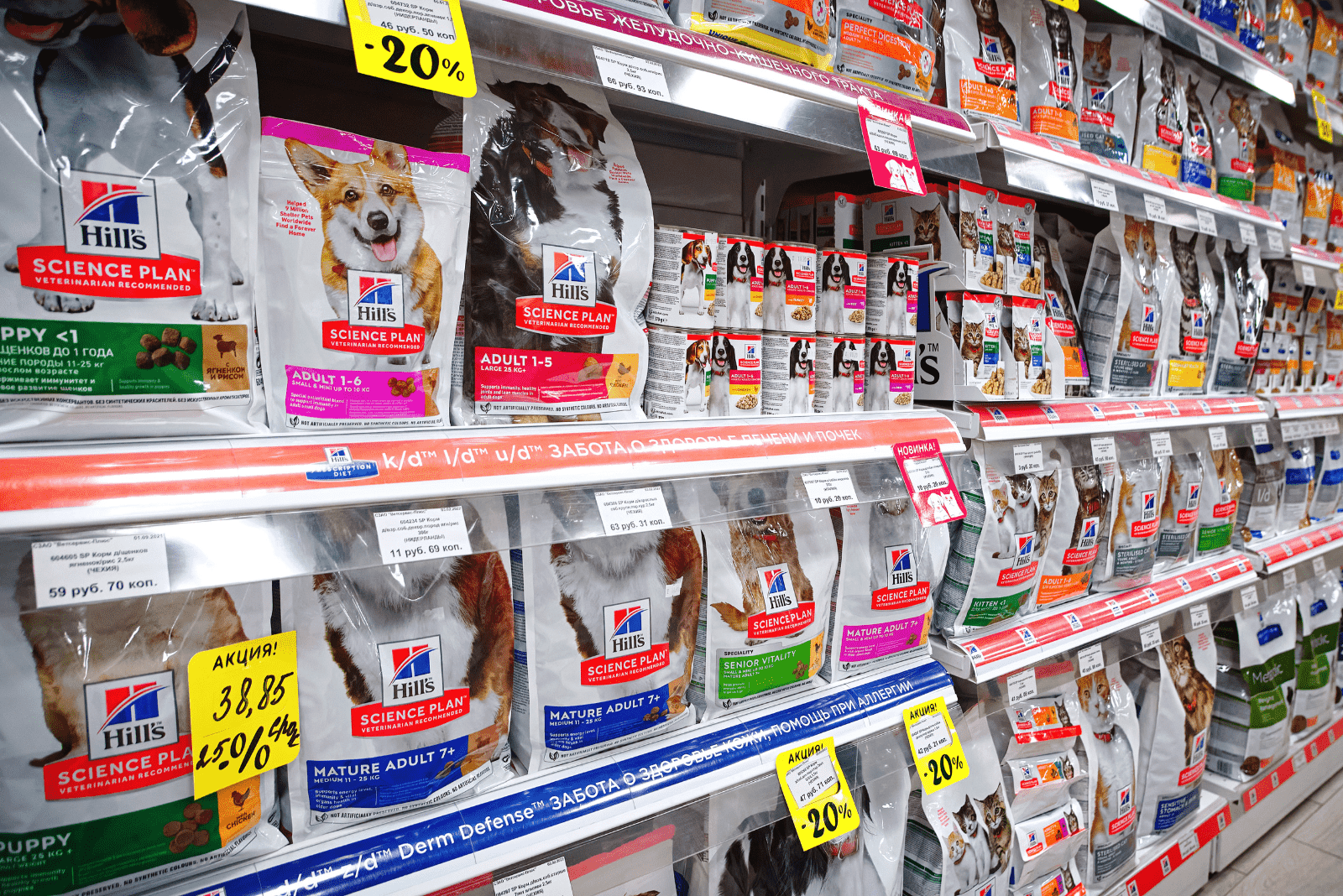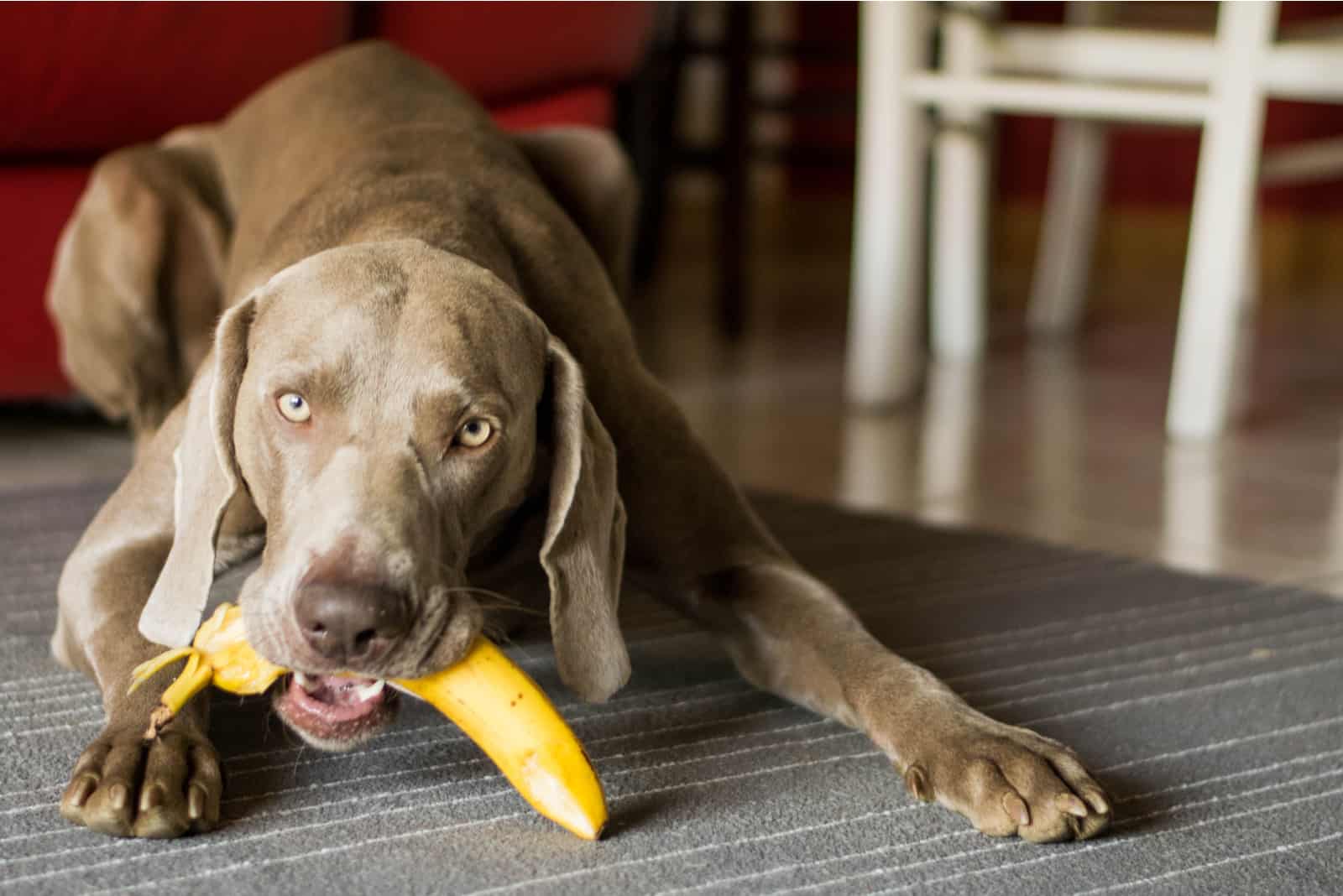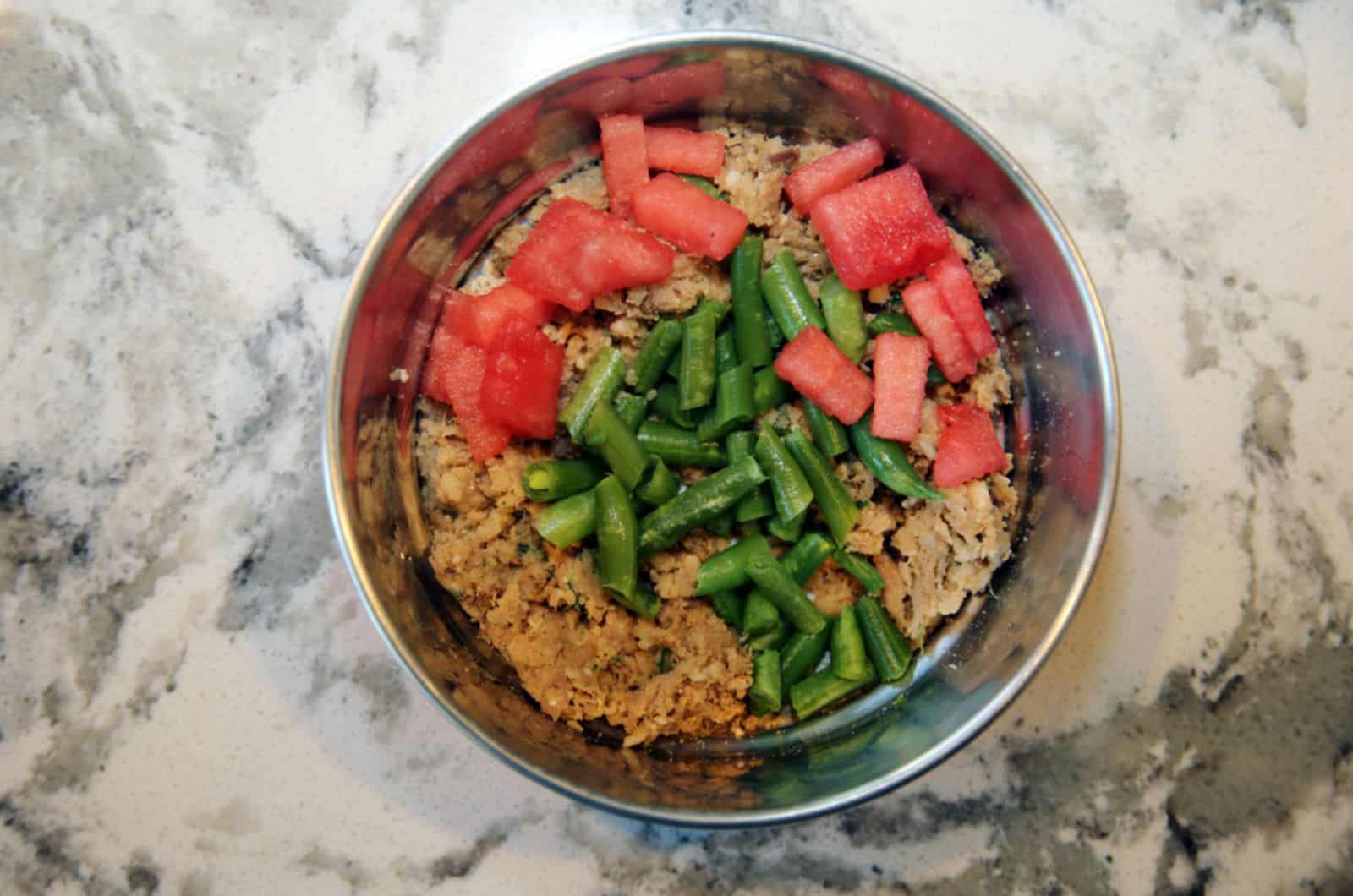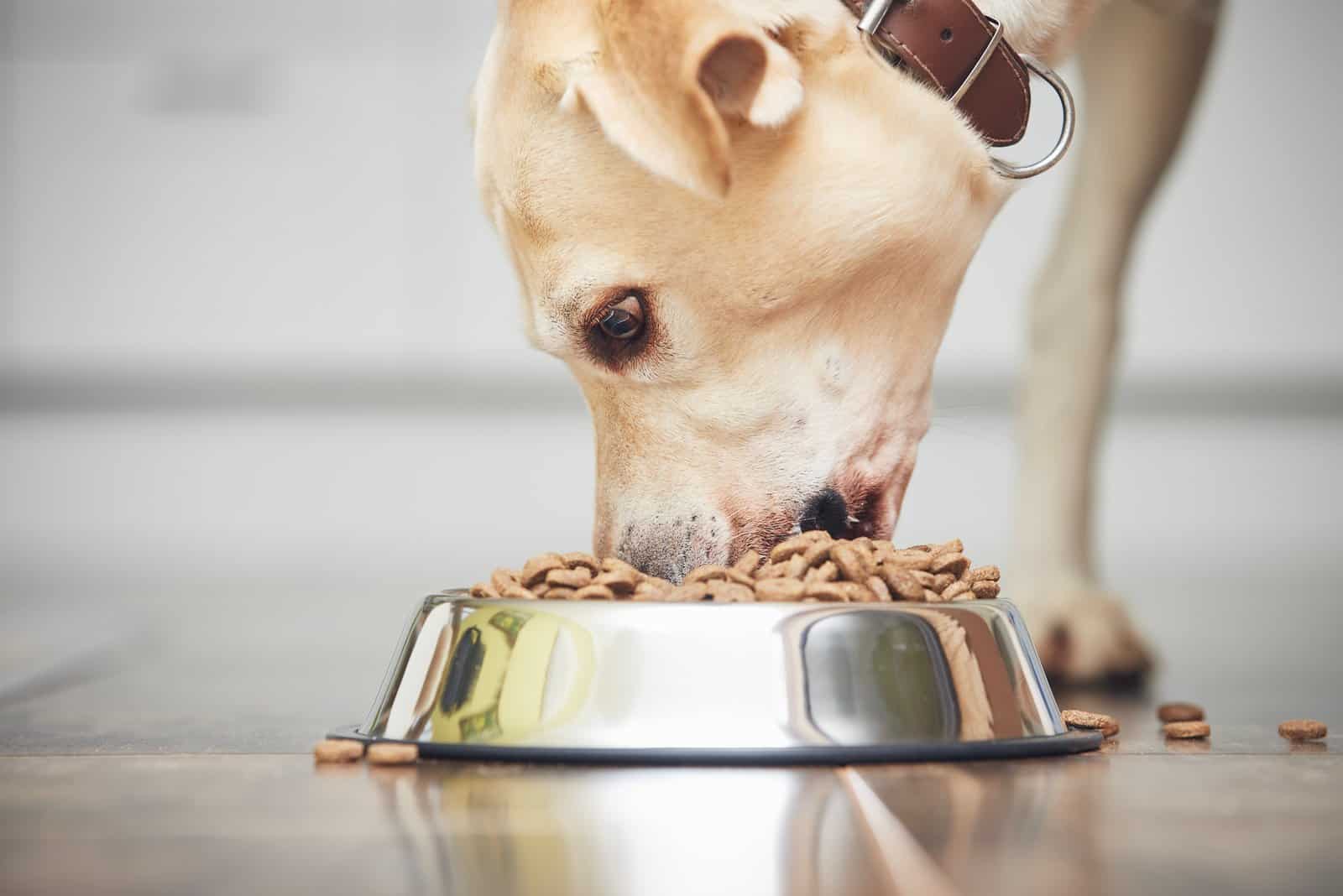I bet a lot of you have heard of durian, the smelliest fruit in the world.
Yes, that surely doesn’t make you want to try durian at all.
So, why do people want to try it? Why do people ask themselves, “Hey, can dogs eat durian”?
Durian is rather… special. This isn’t your average sweet, juicy, exotic fruit. Durian has a significant smell and taste you can’t really describe. Think of it as a mixture of sweat, spoilt foods, and creamy custard.
Chances are you won’t like it at all. But, your dog may like it because, you know, dogs always like the strangest things.
Should your Fido like durian? Is this a healthy treat worth the hype?
I promise you’ll learn all about the “king of the fruits”, its many benefits, and even why it’s considered dangerous. Yes, even fruit can be dangerous!
Sounds puzzling? Well then, let’s solve this puzzle!
So, Can Dogs Eat Durian?
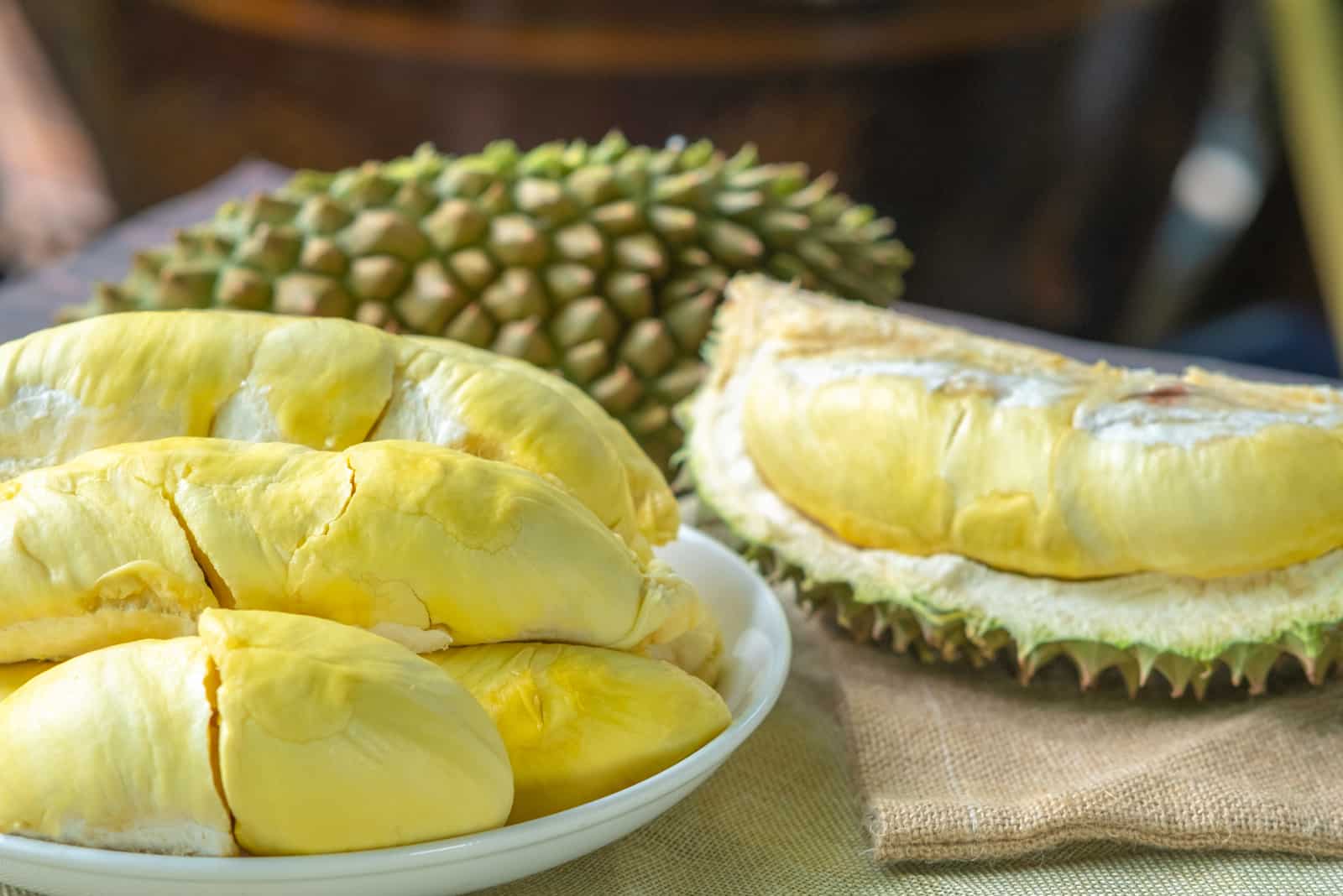
Take a good look at some durian fruit. What do you notice first?
Ah, yes, the spiked shell! To be honest, it gives ME the chills.
But, there’s really nothing to worry about. What lies underneath is delicious and good.
So good that it’s safe for your dog to eat.
However, the only part of the fruit suitable for consumption is the flesh. No stems, no seeds, and no shell at all costs!
Durian has a rather odd taste. This is the world’s smelliest fruit! Not many people are okay with eating it. Also, not many dogs will be fond of it either.
The pungent smell will send a clear warning to your dog’s nose, and he’ll declare it as something not safe for eating.
Still, if your pooch has no problem with how badly durian smells, go ahead and give him a bite or two of the fleshy part.
If you stay with me, I will show you why durian can be a healthy occasional treat for your dog, and how to serve it.
Is Durian Good For Dogs? What’s Durian Rich In?
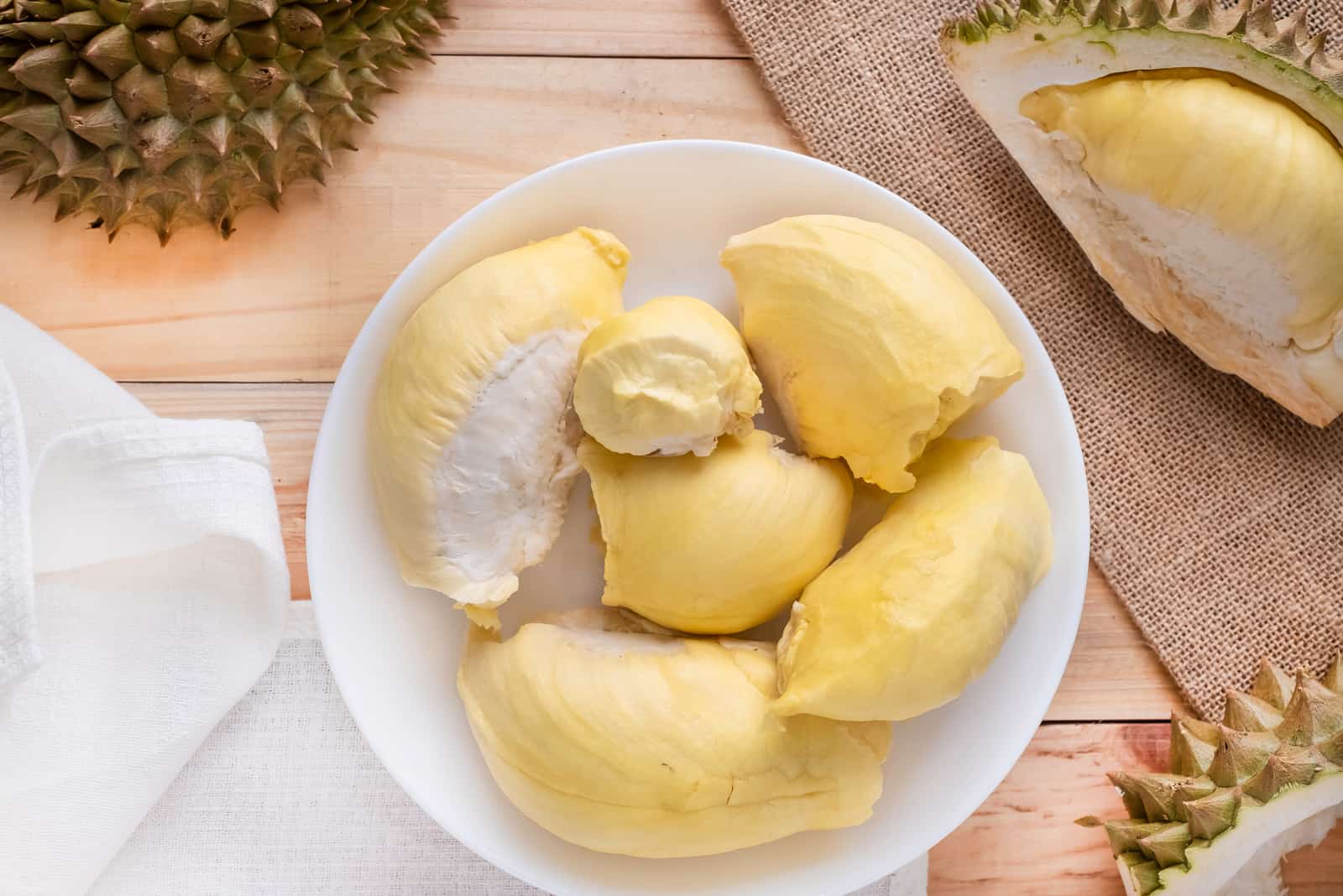
I’m not saying you should let your dog feast on durian, but small quantities will do their magic!
Many pet owners won’t ever think of giving durian to their pups, but they’re clearly not aware of the numerous benefits of this fruit.
Once you remove the scary outer part of durian, you’ll find a treasure chest filled with all sorts of goodies. In fact, just one cup of chopped durian contains enough fiber, minerals, vitamins, and good fats to put your dog through the week.
Here’s a little overview of the vitamins and minerals in durian fruit:
Fats
Carbohydrates
Protein
Fibers
Vitamin C
Vitamin A
Vitamin B6
Vitamin B2 (or riboflavin)
Vitamin B1 (or thiamine)
Vitamin B (or niacin)
Folate (or folic acid)
Potassium
Calcium
Zinc
Copper
Manganese
Magnesium
Sodium
Phosphorus
But, that’s not all! The king of fruits is also rich in antioxidants like flavonoids, carotenoids, polyphenols, and anthocyanins.
Wait a minute! What do these goodies and nutrients do for a dog’s health? Let’s find out!
What Are The Health Benefits Of Durian?
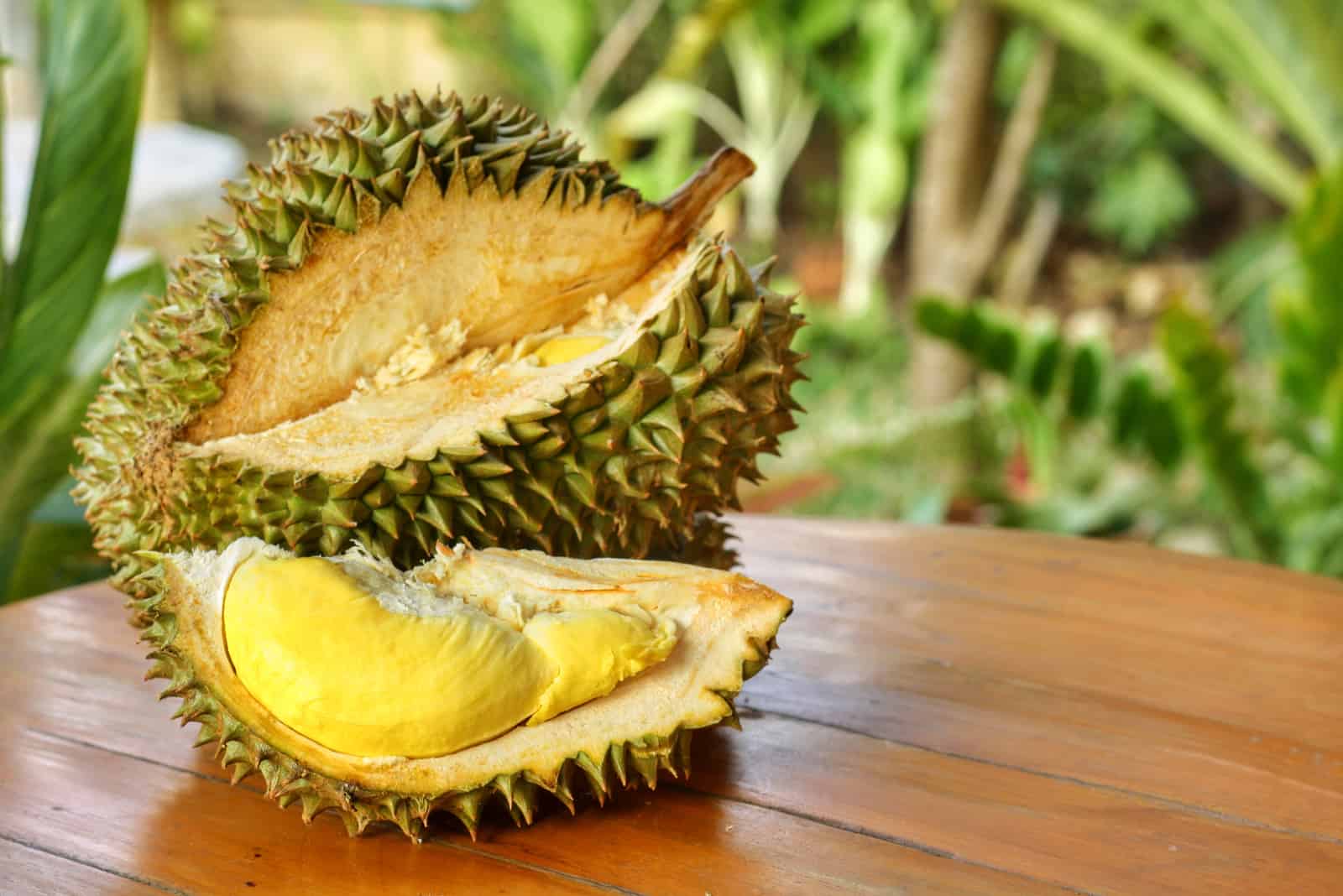
I wouldn’t recommend using durian as a part of dog food if it doesn’t bring along numerous health benefits.
Your dog’s diet should be rich and balanced. Feeding exotic treats like durian every now and then can only enrich it and make your dog healthier.
Here’s why durian should be fed to dogs!
It Calms Down Infections!
Durian fruit is known to have anti-bacterial, anti-yeast, and anti-inflammatory properties. This fruit works wonders for a dog’s digestive system, calming down ulcers and sensitive bowels.
This doesn’t mean you should feed your dog durian all the time. It’s just that the dogs that eat it go through infections much easier than dogs who don’t.
Fights Heart Diseases
One of the biggest causes of numerous heart issues is cholesterol. Yes, even dogs can get it, especially those prone to obesity!
One thing always leads to another. Eating too much leads to obesity. Obesity leads to high cholesterol levels. Cholesterol causes conditions like atherosclerosis, which can eventually lead to a heart attack.
It Reduces High Blood Sugar Levels
Durian is known for having a low glycemic index. This means the food is safe for consumption for those people and dogs suffering from high blood sugar levels.
Once again, use it with caution to prevent other issues, i.e., constipation.
The Cancer Risk Rate Drops
Durian is an excellent source of antioxidants. But, do you know what those antioxidants do?
They fight free radicals! This means that they neutralize cancer-related free radicals, leaving fewer of them free to attack a dog’s body and cause cancer.
Can Dogs Eat Durian Seeds?
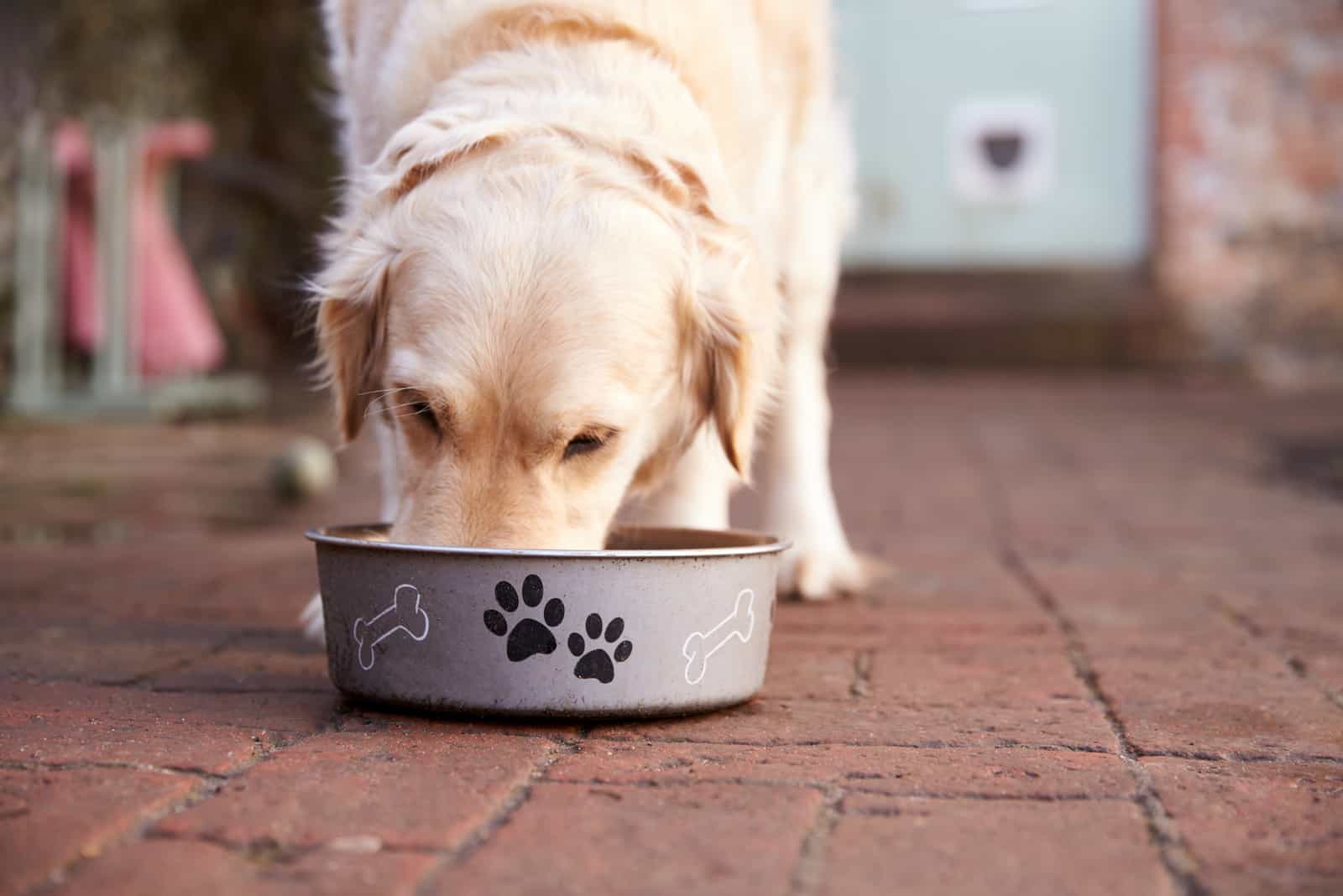
Durian seeds are one of those parts of this fruit that shouldn’t be consumed by dogs. In fact, no one should feast on durian seeds. First of all, they are not delicious. And, second of all, it’s dangerous because durian seeds contain really high amounts of a poison called cyanide.
A common saying tells us not to feed large seeds of anything to our dogs. They can’t be chewed on, and they can’t be digested.
Hard seeds are an immense choking hazard. Even if your dog does swallow one, chances are that durian seeds won’t be passed and they may get trapped somewhere in the dog’s intestines.
In case your dog does eat a durian seed, call your vet immediately because your dog will be experiencing cyanide poisoning.
Symptoms of ingesting this chemical compound include vomiting, excessive pooping, fatigue, bloating, cardiac arrhythmia, skin issues, etc.
Cyanide poisoning can be fatal, so instead of experimenting with home remedies, seek professional help.
Can Durian Harm My Dog?

What Are The Side Effects Of Eating Too Much Durian?
Durian isn’t harmless at all, and it should be approached with caution.
There are several ways in which durian can hurt your dog. The important thing is to keep your dog away from the poisonous parts of this fruit.
However, the edible part carries some hidden threats, too. We’ll discuss that soon.
As you already know, durian’s seeds, stems, and other parts besides the flesh contain cyanide. Other than this dangerous substance, durian can actually physically hurt your dog, meaning that its pointy shell can cause some really bad injuries.
When introducing durian, or any other human food, you must watch your dog’s behavior for potential allergic reactions. Durian isn’t a common fruit, and there are high chances that your dog will be allergic to it.
But, then again, if your dog has never had an apple, there are also chances he might be allergic to apples, too!
What I’m trying to say is that you should always observe and react in time. The most common allergy symptoms include rashes, hives, indigestion, fast breathing, vomiting, diarrhea, and loss of consciousness.
Durian for dogs is okay in moderate amounts. If you let your dog eat too much of this exotic fruit, he may start experiencing symptoms of food poisoning, and it will upset his stomach. Watch for cues like fatigue, vomiting, or diarrhea.
These are all symptoms that occur fast. However, long-term overuse of this fruit may lead to constipation, obesity, and diabetes all because of large amounts of natural sugars found in this fruit.
As you may conclude yourself, durian is pretty dangerous for first-time owners and inexperienced people.
Serving Your Dog Durian: How Much Durian Can Dogs Eat?
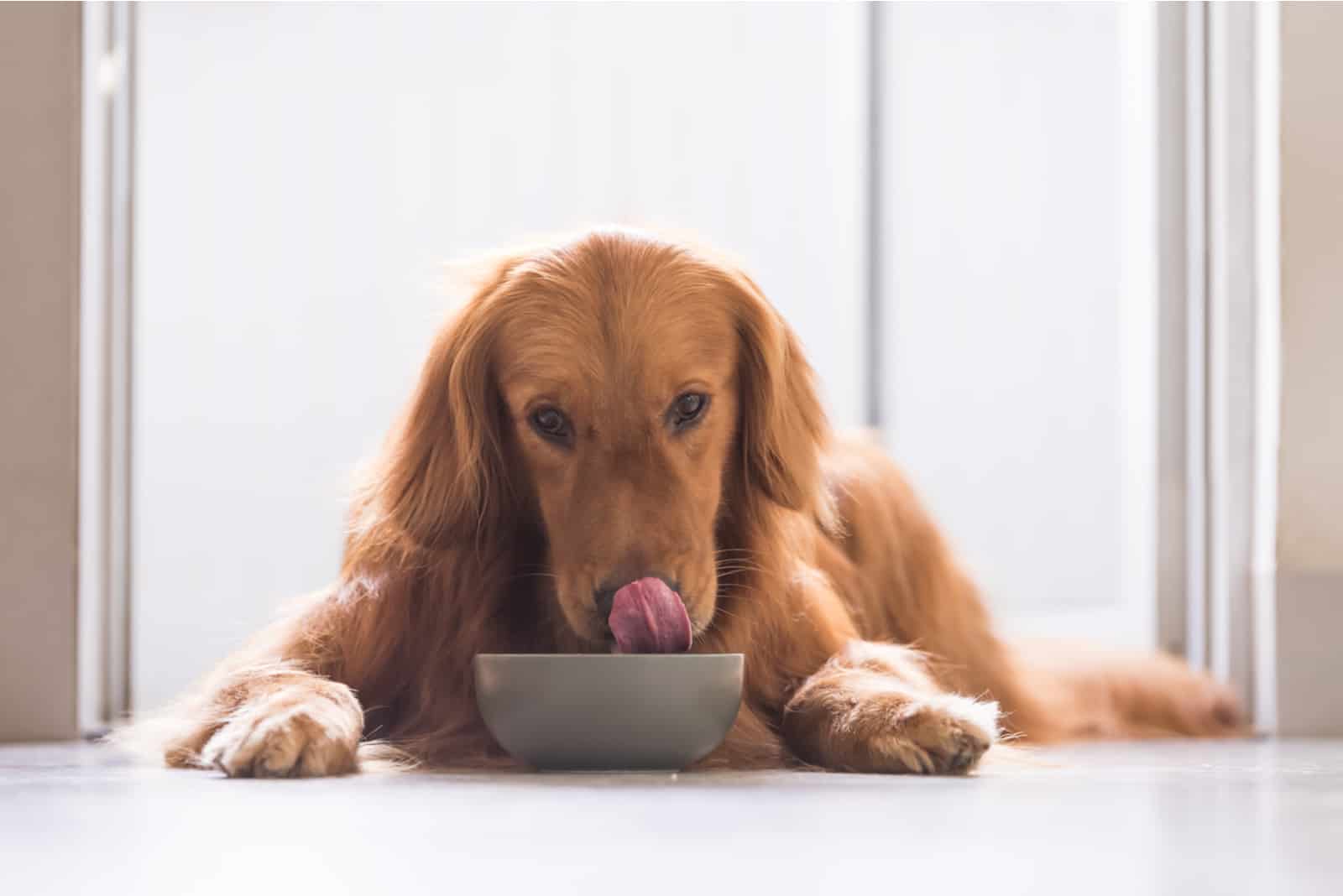
Serving durian is tricky. First, you need to get rid of the spiked shell to reach the fleshy goodness.
Since you’re more likely to buy durian at Asian markets, I suggest you ask the seller to open durian for you.
Or, you can play at home and try to open this exotic fruit yourself!
Wash the fruit and place it on a cutting board with the stem facing down. It’s more comfortable if you wear gloves. Cut into the fruit carefully and separate the flesh from the rind.
You should get rid of the stems, leaves, rind, and seeds so your dog doesn’t find them and take a bite.
There are really no specific recipes for serving durian to your dog. If he’s okay with it and doesn’t gag or run away from the smell of this fruit, you can give only a small amount of durian every now and then.
Durian for dogs can serve as a health treat when learning some training lessons, or a healthy snack to enrich a dog’s regular diet.
Don’t try to force your dog to eat durian. If it’s not on your daily menu, there’s really no point in giving large amounts of it to your dog either.
FAQs
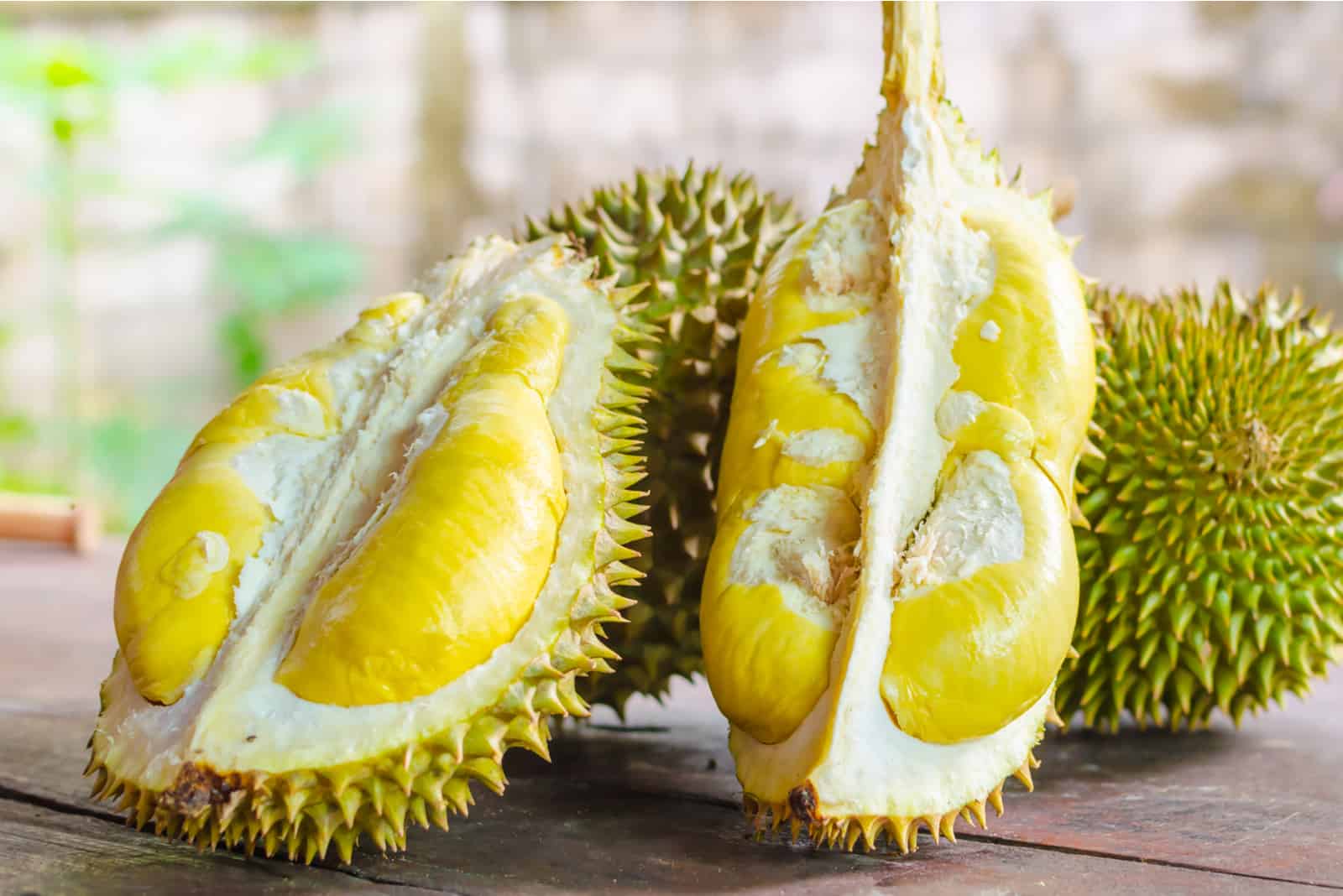
What Is Durian Fruit? Should It Be A Staple For My Dog And I?
Durian is definitely a fruit despite its funky look. This exotic treat is highly valued in countries of Southeast Asia such as Indonesia, Malaysia, Thailand, and Singapore.
The “king of fruits” is very popular in these areas, where it’s considered a delicious snack. But, its pungent smell, questionable taste, and overall unusual appearance makes people outside Asia highly suspicious about consuming it.
Durian doesn’t have a long shelf life. It’s better to use it when ripe in the first place. Outside Asia, durian is pretty pricey, and on top of all of it, quite hard to find.
So, if it’s not a staple in your kitchen, don’t force it too much. Nothing will happen to you or your dog if you don’t have some durian every day.
What Does Durian Taste Like, And Do Dogs Like It?
Many people have trouble defining what durian tastes like. What’s interesting is that not everyone experiences the same flavor. You may say it’s very delicious, but your friend may gag at the smell of it.
Usually, durian’s smell is described as a mixture of dirty socks, onions, and eggs gone bad. The flavor? Almost the same.
However, people who actually like durian claim it’s similar to almond, but with a creamy texture and a bit of a sweet flavor.
You will never know if you like durian unless you try it.
Dogs can eat all sorts of foods with textures, and go past hideous odors. I’ve seen some pooches enjoying the awkward taste of durian. So, yes… I’d say the freakier, the better for our canine buddies.
What Other Exotic Fruits Are Not For My Dog?
As far as exotic fruits go, dogs are perfectly safe to eat things like guava, papaya, mangoes, and cantaloupes.
But, what about other fruits, like coconut?
Well, coconut is safe, but what isn’t safe are acai berries, rambutan, kumquats, and breadfruit. Also, jackfruit (something many people mistake for durian) isn’t safe. So, be careful what you’re offering your dog.
What Is The Best Low-Sodium Dog Food?
A low-sodium diet is excellent if you’re trying to make your dog lose weight. However, you can’t rely only on the low sodium properties. Such food still has to be nutritious, rich in vitamins, minerals, and able to provide lots of energy.
The best low-sodium foods include fruits and veggies like fresh green beans, edamame, bananas, chickpeas, plantains, and even dairy products like mozzarella or cottage cheese. But, blue cheese is off limits.
These ingredients are also a terrific source of fiber, selenium, magnesium, folate, calcium, vitamins A, B, and C, and more.
When feeding your dog one of these listed foods, i.e., a banana, make sure it’s only a small amount since a banana has a lot of natural sugar, and prolonged use can lead to diabetes.
Conclusion
Dog owners all over the world don’t have to worry or ask questions like “Can dogs eat durian”.
Durian is an exotic treat you either like or dislike. The same goes for dogs.
It’s perfectly safe to feed your dog durian as long as you clean the fruit properly and offer only the fleshy part.
Only feed small amounts as you don’t know how your dog will react to it.
Durian can be a healthy snack between meals or a reward while training. That is, if your dog likes the taste. Watch carefully for cues that your dog doesn’t like it, or if it’s having a reaction after eating it. This is not a harmless treat!
If durian isn’t your cup of tea, some other exotic fruits, or fruits in general, would be just fine.
